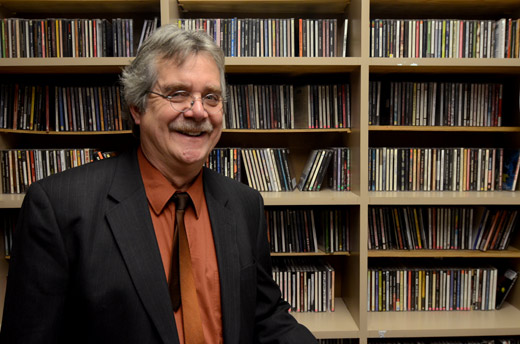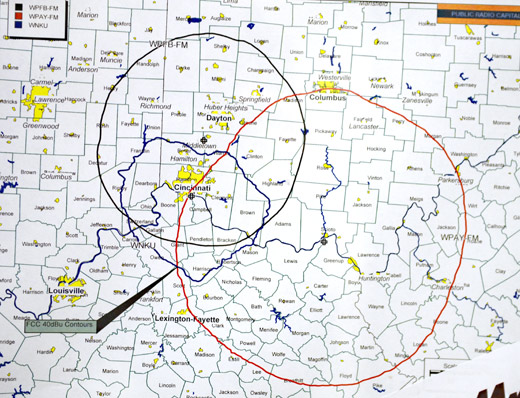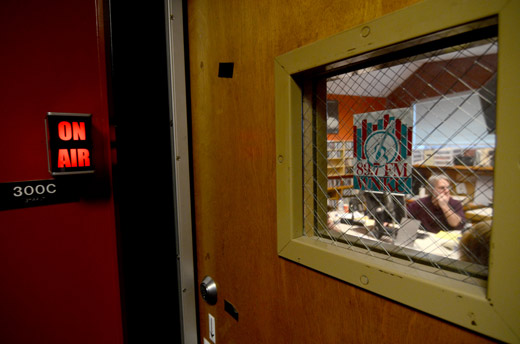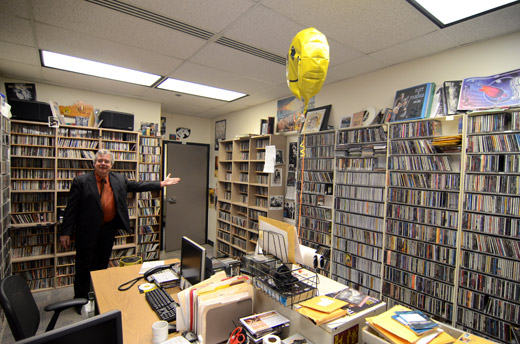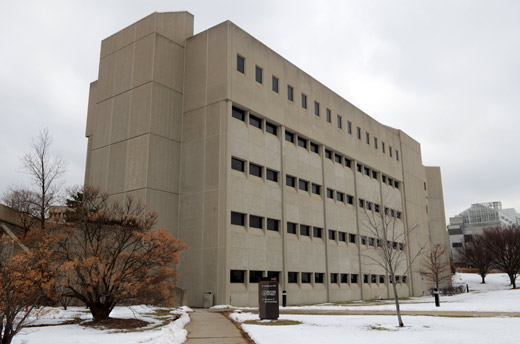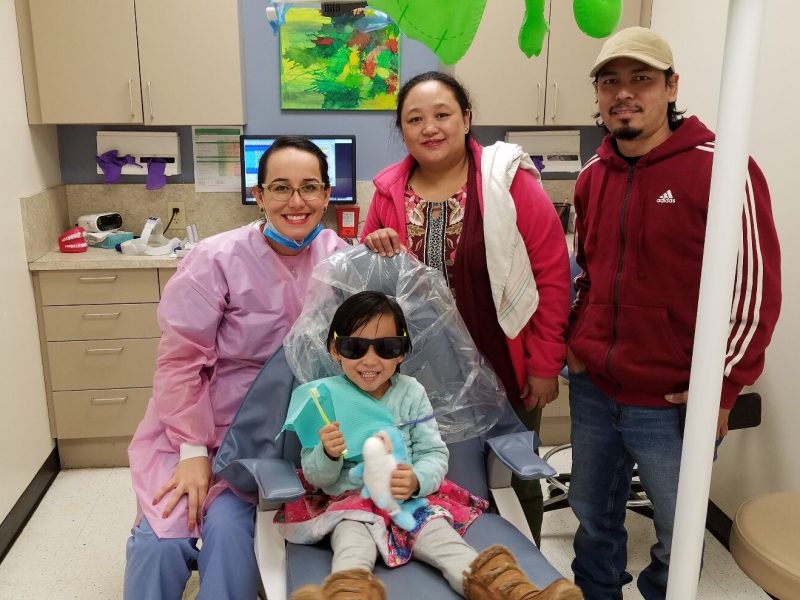Inside WNKU’s Million Listener Expansion
WNKU-FM and its eclectic mix of alternative music and news has some new sonic muscles to flex after acquiring three radio stations that could expand its reach to a million more listeners.
 WNKU-FM, based in Highland Heights, was once notorious for its “twilight zones,” listening dead spaces where static garbled up the station’s always-eclectic mix of rock’n’roll, blues, folk and alternative music and news. In the weeks leading up to the college radio station’s signal expansion beginning Feb. 1, listeners might have heard an in-house ad like this:
WNKU-FM, based in Highland Heights, was once notorious for its “twilight zones,” listening dead spaces where static garbled up the station’s always-eclectic mix of rock’n’roll, blues, folk and alternative music and news. In the weeks leading up to the college radio station’s signal expansion beginning Feb. 1, listeners might have heard an in-house ad like this:
“Right now you may be driving through one of those places where WNKU (89.7) just kind of fades away. Or maybe that’s what happens at your home or office. Well, take heart fellow traveler, when you reach one of those radio ‘twilight zones, all you have to do is switch to 105.9 or 104.1 FM et voilà! WNKU will be there, too.” For 25 years since its founding, WNKU-FM was handicapped by a single radio tower that could barely penetrate nearby downtown Cincinnati and parts of Ohio and Kentucky. Now the station’s signal reaches as far north as Dayton, Ohio, and all the way out east to Huntington, West Virginia, providing it the sonic muscles to match some of the area’s big commercial competition and better serve downtown Cincinnati listeners. The new WNKU could serve upwards of 2.2 million new listeners, including some as close as downtown Cincinnati.
For 25 years since its founding, WNKU-FM was handicapped by a single radio tower that could barely penetrate nearby downtown Cincinnati and parts of Ohio and Kentucky. Now the station’s signal reaches as far north as Dayton, Ohio, and all the way out east to Huntington, West Virginia, providing it the sonic muscles to match some of the area’s big commercial competition and better serve downtown Cincinnati listeners. The new WNKU could serve upwards of 2.2 million new listeners, including some as close as downtown Cincinnati.
“We’ve never had a real opportunity to serve downtown – deep in the caverns of the towers – without signal loss,” says Chuck Miller, general manager. “When it’s time for us to find listeners, we have two impressions: One is that we’re a college radio station because of the call letters; and two, if they lose us downtown, they’re never coming back because of the crummy signal.”
Approved by Northern Kentucky University, the radio station’s $6.75 million aquisition of Middletown-based WPFB-FM (105.9) and WPFB-AM (910), and Portsmouth-based WPAY-FM (104.1) makes it’s reach three times larger. And it’s doing so without costing the University any money, by paying off a 20-year, tax-exempt bond and aiming to wean itself off the University’s $300,000 annual contribution to its $1.1 million annual operating budget.
The station’s move will allow NKU to reallocate future funding intended for the station to other high profile projects. Gerard St. Amand, vice president of university advancement, and Miller’s boss, says funding for the high-tech Griffin Hall, future home of the College of Informatics, will be among the high priorities that benefit from the station’s growing fiscal autonomy.
 “The projections regarding the station’s financial benefits call for reducing the need for the University’s support significantly (about one-half) in two years, and entirely in four years,” Amand says.
“The projections regarding the station’s financial benefits call for reducing the need for the University’s support significantly (about one-half) in two years, and entirely in four years,” Amand says.
The expanded WNKU-FM will see an uptick in listener support and corporate sponsorship (or, underwriting) by the end of the fiscal year this June. Its 2010 fiscal year saw $355,000 in listener support and roughly $275,000 in underwriting, according to Miller.
“This is going to be a different year for us. Our next fund drive will be on our new network,” he says.
Miller was the driving force behind the station’s recent acquisitions, consulting with NKU’s executive team, including St. Amand.
“I made a lot of people work very hard,” he laughs. He’s now looking for new business in the station’s former twilight zones, especially those downtown, where 105.9 comes “booming in.”
“When we were looking for corporate partners,” he says, “many of them said, ‘Well, why underwrite for your station when I can’t hear it?'”
Now they can. That’s encouraging, says program director Michael Grayson. On the air with WNKU for 10 years and counting, he’s content with the station’s broadcasting schedule. Staples like the soul-heavy “Mr. Rhythm Man” and Grayson’s “Friday Morning Requests” won’t disappear any time soon.
“We have a good product and I don’t think we have any intention messing with it,” he says. “We’ve always been pretty confident about what we have here, but we could only do so much because of the reception issues.”
And he’s not concerned with how the station will compete against commercial radio.
“I don’t monitor other stations to see what we’re doing, and I don’t view them as our strict competitors – like we have to out-do them with promotions or play the right songs and all that stuff,” he says. “The staff here is just so good at what they do and what music to play. It sounds elitist, I know, but it’s really the attitude we have here,” says Grayson.
WNKU Music Director John Patrick has similar impressions. Patrick is the guy at the helm of afternoon tunes, WNKU-sponsored concerts and Studio 89, a summer series of in-studio performances.
“We listen to people, and I don’t think they do,” he says in reference to commercial radio. “They keep spinning the same single over and over. We play four or five singles of an album with almost everything we do.”
 Patrick has big plans to coincide with the signal expansion, including scheduling shows in Dayton and Huntington.
Patrick has big plans to coincide with the signal expansion, including scheduling shows in Dayton and Huntington.
“Maybe have an artist play Dayton, Huntington and Cincinnati,” he muses. “That’s been talked about.”
Community outreach is part of WNKU-FM’s mission as well, “and it’s also at the core of our marketing strategy,” says Aaron Sharpe, assistant GM of development and marketing. “That will continue to be the case as we venture into these new territories. We’ll be reaching out to concert halls, arts organizations, parks, clubs, and community non-profits from Dayton to Huntington, with the hopes of working together to promote music, the arts, the environment, and of course, each other.”
And the reward aren’t just financial. Dr. John Owens, professor at University of Cincinnati, teaches broadcasting courses and oversees UC’s student radio station, Bearcast. Owens says that non-commercial public radio stations are the new cutting edge.
“I think a lot of the innovative work being done in broadcast radio these days comes through public radio,” he says. “They’ve taken some interesting chances, and in some cases, they can because they might have a subsidy (from an institution) like NKU. Even with what a lot of stations are doing online – or what National Public Radio is doing – I think that they have pushed the envelope a little bit with programming, and they should be applauded for that.”
Photography by Scott Beseler.
On air studio at WNKU
Chuck Miller
Map of expanded listening range
WNKU archives
Northern Kentucky University, Muntz Hall

